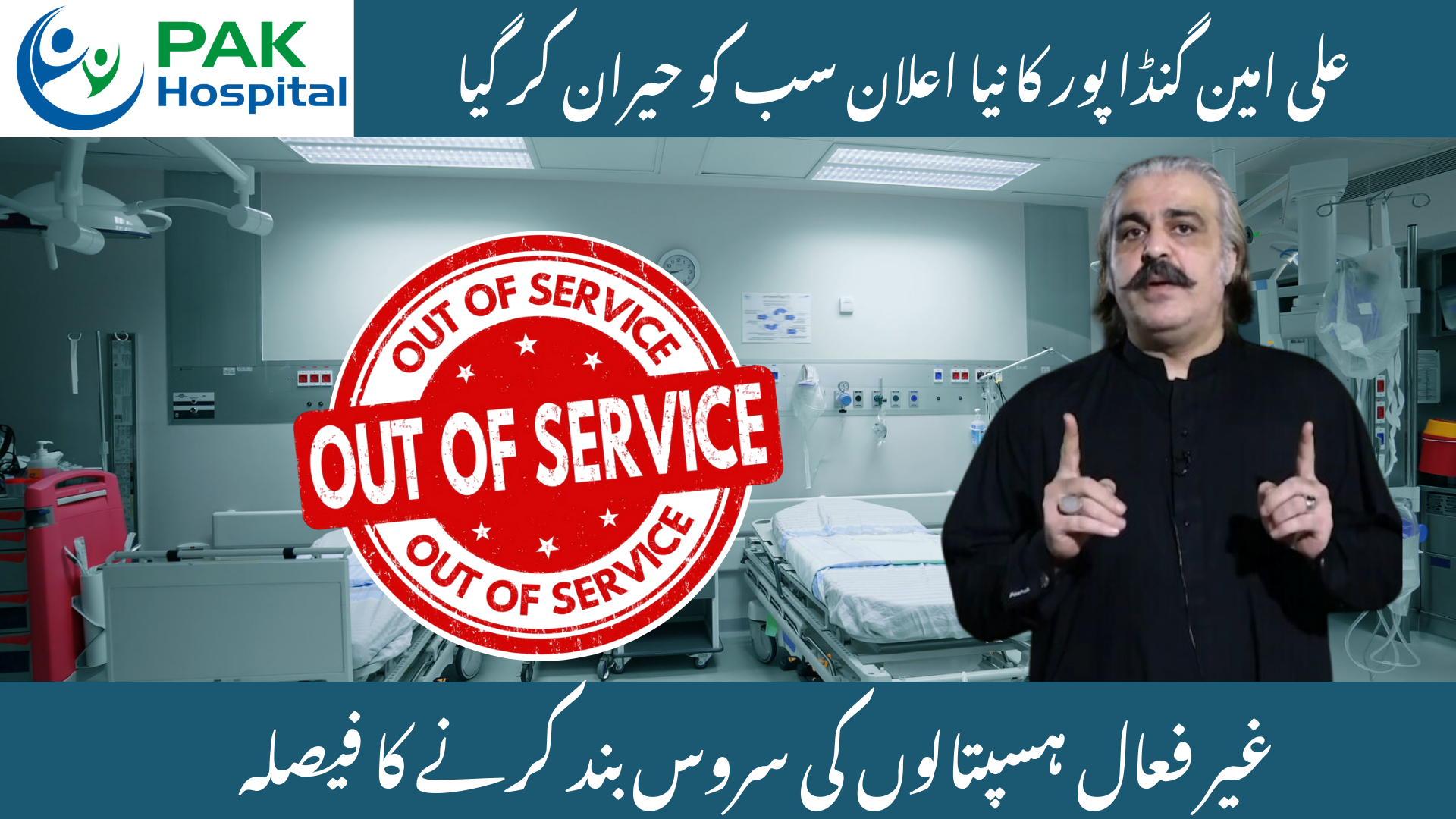Khyber Pakhtunkhwa (KP) has taken a bold step to reform its healthcare system. The provincial government has announced plans to hand over management of 24 ailing hospitals to private sector partners. This move aims to improve the quality of medical care, reduce waiting times, and ensure patients receive services free of cost or at nominal government rates.
KP Health Advisor, Ehtesham Ali, emphasized that this initiative is not privatization but an effort to enhance hospital management and efficiency while keeping public ownership intact.
Purpose of Outsourcing Hospital Management
The main goal behind this initiative is to upgrade healthcare services in struggling hospitals. By outsourcing management, the KP government intends to:
- Ensure timely and quality treatment for patients
- Improve hospital administration and workflow
- Make better use of existing government resources
- Increase transparency and accountability in healthcare delivery
The private sector will bring operational expertise, while the government continues to fund and oversee services. This public-private collaboration aims to fill critical gaps in healthcare provision across the province.
Which Hospitals Are Included?
In the first phase, KP will focus on 24 underperforming hospitals classified as Category B, C, and D. These hospitals face challenges such as:
- Shortage of medical staff – doctors, nurses, and paramedics
- Lack of essential equipment – diagnostic machines and surgical tools
- Poor administration – inefficient workflows and record management
- Delayed treatment services – long waiting times for OPD and emergencies
It is important to note that this step does not involve privatization. All hospitals will remain publicly owned, and current government employees will continue their roles under the new management system.
Benefits for Patients
For the general public, this reform promises tangible improvements without extra costs. Patients can expect:
- Free or low-cost treatment at government-approved rates
- Faster OPD services with reduced waiting times
- Better staff behavior and improved patient interaction
- Clean and hygienic facilities
- Availability of functional equipment and medicines
- Regular presence of doctors, nurses, and support staff
These enhancements aim to restore trust in government hospitals and reduce reliance on private clinics.
Role of the Private Sector
Private sector partners will manage day-to-day operations and are responsible for:
- Hiring additional medical staff where shortages exist
- Supplying missing equipment and ensuring its functionality
- Managing hospital administration and operations efficiently
At the same time, the Independent Monitoring Unit (IMU) of KP Health Department will strictly oversee these hospitals to ensure transparency. Measures include:
- Penalty system – deductions if hospitals underperform
- Public complaint redressal – addressing patient grievances quickly
- Regular audits – performance and service quality checks
This system ensures efficiency while keeping accountability intact.
Not Privatization – Just Better Management
Many citizens may fear privatization. KP officials have clarified that:
- Ownership remains with the government
- All current staff retain their positions
- Services continue at public rates
- Only management and operational responsibilities are outsourced
This model allows private expertise to enhance healthcare delivery without compromising public access.
Future Expansion
If the first phase proves successful, the KP government plans to expand the model to more hospitals in the province. The long-term vision is to:
- Strengthen the healthcare system
- Improve patient care standards province-wide
- Make hospitals more reliable, responsive, and resource-efficient
By combining government funding with private operational skills, KP aims to set a benchmark for healthcare reforms in Pakistan.
Key Takeaways
- 24 ailing hospitals in KP will be managed by private partners
- Focus is on better healthcare delivery, not privatization
- Patients will enjoy free or low-cost services with improved quality
- Government oversight and accountability remain intact
- Success may lead to province-wide healthcare reforms
FAQs
Q1: Will patients have to pay more at these hospitals?
No, treatment will remain free or at existing government-approved rates.
Q2: Are these hospitals being privatized?
No, ownership remains public. Only management is outsourced.
Q3: How will private companies be monitored?
The Independent Monitoring Unit (IMU) will oversee performance, penalize underperforming firms, and handle public complaints.
Q4: Which hospitals are included in the first phase?
24 hospitals classified as Category B, C, and D, struggling with staff, equipment, and administration.
Q5: What changes can patients expect?
Faster OPD services, cleaner facilities, regular staff presence, functional equipment, and improved patient care.













